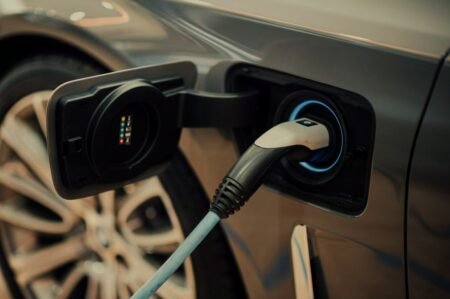Countries meeting at COP30 approved a set of modest actions, including a decision to implement a just transition mechanism.

In addition, outside of the formal negotiations, Brazil will lead a science-based international discussion on roadmaps for transitioning away from fossil fuels and ending deforestation. But given that this was the first climate summit since the world experienced a full year above 1.5°C – a stark reminder of the urgency we face – these advances are insufficient to drive the urgent, transformative action needed to avert devastating climate impacts and protect people and nature.
Despite the Brazilian presidency’s efforts and support from at least 86 countries, negotiators were unable to agree on any direct mention of the transition away from fossil fuels in formal texts. Likewise, while more than 90 countries backed an implementation plan to halt and reverse deforestation by 2030, wider political will to secure this in Belém was lacking, even with the Amazon rainforest as the summit’s backdrop. Responding to this, the COP Presidency announced Brazil would lead international discussions on roadmaps as presidential initiatives, to be reported to COP31 next year.
An important outcome of the COP is the decision to set up a just transition mechanism to foster international cooperation. The COP Preamble also has mentions on Indigenous Peoples, local communities and afro descendants, as well as oceans, forests and science.
Manuel Pulgar-Vidal, WWF Global Climate and Energy Lead and COP20 President said: “As COP30 ends, the reality is clear: bold titles and grand promises have not translated into meaningful action. The so-called ‘COP of Truth’ delivered neither a roadmap nor real solutions for the urgent challenges we face. Instead, we were taken for a ride on a carousel of illusions – distracted by colourful promises but left with a document that is weak and lacking in substance due to games played by the forces against climate ambition and implementation.”
“Hope was offered but not delivered. The absence of a credible plan to address the climate crisis and the failure to recognise core drivers of the climate crisis, like fossil fuels, speaks volumes. These countries lack the political will to take bold action. They are letting down the people they serve, the science they know and the Paris commitments they made in 2015.
“Yet, the energy and commitment shown by so many in civil society, science, and frontline communities remind us that real change is still possible. We cannot afford more empty gestures
“The EU suffered from a lack of cohesion. While it tried to hold the line on a fossil fuel phase-out, it struggled to rally around a clear, ambitious ask. The inability to build trust through concrete commitments on climate finance ultimately weakened its influence,” said Alex Mason, Head of Climate and Energy at WWF EU. “A strong COP outcome usually means every country leaves slightly unhappy. But in this case, and even with the roadmaps championed by the Brazilian Presidency on the horizon, fossil fuel-producing countries will be quite pleased with the final outcome.”
Mauricio Voivodic, WWF-Brazil Executive Director said: “COP30 delivered important results beyond the official negotiation texts, and this must be considered. Climate action is not – and should not be – restricted to formal talks. The Presidency restructured the Action Agenda and mobilized 117 plans to accelerate large-scale solutions, engaging sectors across Brazil and around the world in a COP marked by the strong inclusion of social groups such as Indigenous peoples and local communities. The launch of the Tropical Forest Forever Facility, aimed at financing the reduction of deforestation in tropical countries, was one of the highlights in Belém.
The EU’s two faces on deforestation
Brazil used Belém to launch the Tropical Forest Forever Facility (TFFF), a major climate-finance initiative to protect forests worldwide, which has received backing from the EU and some European countries. Unfortunately, while their support and pledges grabbed headlines and earned praise, some EU Member States quietly moved to hollow out the EU Deforestation Regulation (EUDR).
“The EU supports global initiatives against deforestation with countries like Germany pledging millions on top, and at the same time they dismantle the very EU law designed to stop forest destruction. This is dishonest and the antithesis of transparency,” said Anke Schulmeister-Oldenhove, Manager for Forests at the WWF European Policy Office. “Delaying and gutting the EU Deforestation Regulation just before its application show a complete lack of accountability, disregard for citizens’ will, and creates nothing but chaos and confusion for businesses.”







